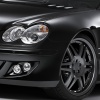Search the Community
Showing results for tags 'halogen'.
-
Hi guys, Anyone has tried changing headlight halogen type to LED? Basically I am thinking to change my halogen bulb to LED, as I wanted to have a very bright and white look on my car. I need some advice from you guys as below, Type 3825 / 5050, which type to go? Then how many LEDs in order to achieve a super bright enough look closer to HID? lol.. Thanks any bros in advanced.
-
https://www.channelnewsasia.com/news/singapore/halogen-light-bulbs-to-be-phased-out-all-lamps-sold-to-be-as-10866584 SINGAPORE: In an effort to spur consumers to switch to energy efficient bulbs, the National Environment Agency (NEA) is raising what is known as the Minimum Energy Performance Standards (MEPS) of light bulbs, which will effectively phase out halogen lamps. The agency is aiming for all light bulbs in Singapore to be, minimally, as energy efficient as LED bulbs from 2023 onwards, it said in a media release on Friday (Oct 26). Under the current MEPS regulations, halogen or incandescent bulbs, which account for about 5 per cent of all regulated lamps sold in Singapore, must attain a one-tick rating, and LED bulbs must attain a two-tick rating. From Nov 1, 2019, all bulbs, incandescent or LED, must attain a two-tick rating on their Energy Label when brought into Singapore for sale. Anyone who flouts the MEPS regulations when they come into force will be liable on conviction to a fine not exceeding S$10,000. The NEA will also introduce two enhancements to the Mandatory Energy Labelling Scheme (MELS) - more than 80 per cent of lamps sold in Singapore will be covered, and displaying of energy labels in all publicity materials, physical or digital, is now mandatory. These will take effect on Nov 1, 2019. “It is important for consumers to be able to differentiate energy-saving products, such as LED lamps, from less energy efficient products," said Mr William Song, the sales marketing head at LEDVANCE, a lighting supplier. "This allows them to make informed choices and benefit from the greater durability, light quality and lower energy consumption of LED lamps, which results in cost savings for families in the long run.
-
I have got a pair of halogen down lights in my ceiling. For some reason, I find they keep taking turns to blow out after a few months. I have spent quite a bit of money replacing the bulbs but they don't last very long. After a few months, one will start to flicker and eventually die. I notice that the pins of the bulb would have turned black. Is it because it is too hot? Anything I can do?
- 33 replies
-
- Halogen
- downlights
-
(and 2 more)
Tagged with:
-
-
- mitsubishi
- valeo
-
(and 5 more)
Tagged with:
-
Hi guys, coming from HID headlight and my next ride will be in Halogen. Been satisfying with HID and considering to replace stock to HID. There's a debate of having HID bulb in Halogen Projector will cause nuisance to other road users, what's your tot...
- 19 replies
-
Anyone can recommend me a place to change my altis cabin lighting to led bulbs? Preferably philips one as they seems more reliable. Or where can I buy my own to change if it's not too difficult?
-
Hi all, Saw this advertisement. Anyone on this headlights already. New product from Philips. Philips WhiteVision: maximum whiteness, ultimate brightness The new Philips WhiteVision halogen headlamp delivers an intense, white light with up to 4100K color temperature, 20% whiter light for ultimate style, and 40% more light* on the road for increased visibility and maximum safety. With its unique lighting signature together with the exclusive coating technologyTM coating and stylish blue cap, Philips WhiteVision makes your car stand out from the crowd. The new high-performance burner and UV-blocking quartz glass^ offers the brightest lighting performance you've been looking for. WhiteVision is a fully homologated, road-legal, powerful white light headlamp created by Philips, renowned for the most innovative and technologically advanced automotive lighting solutions for the past 100 years. Its high-quality lighting products make Philips the choice of all major car manufacturers worldwide. .http://www.philips.com.sg/e/whitevision/home.html http://www.youtube.com/watch?v=asHMnMJAtLg&feature=youtu.be
- 25 replies
-
- 2
-

-
- light halogen philips bulb
- philips
-
(and 4 more)
Tagged with:
-
Our in-house writers Regan and Nicholas go head to head in this month's battle: Who will take over the world - LED or halogen? LEDing the way - Regan says, "LED FTW (For the win)!" It's pretty obvious that Light Emitting Diodes (LEDs) are the latest and most exciting technological advancement in the lighting industry. Let's start with daytime running lights. Just like how eyeliner emphasises an eye, a strip of light can be designed to underscore a vehicle's character. In that sense, this relates highly to Audi cars and their signature LED daytime running lights. Automakers favour LEDs because they are durable, compact and energy efficient. LED light sources can last much longer than halogens and typically last the life of a vehicle, which can be seen as an added value to consumers. Even the new Mercedes-Benz S-Class will become the first vehicle in the world that will not use a single light bulb. Instead, the tri-star flagship sedan will be fitted with almost 500 LEDs filling all lighting, signalling, and interior illumination roles. Regan's take on this? LEDs will certainly have a bright future. Even the light in his room is LED. Nicholas reckons that LED will never be the star of the prom without the plain Jane Halogen Nicholas isn't just about to bring in the saying that 'old is gold' because, certainly, halogen being the elder and more outdated tech of the duo isn't all shimmery yellow. That said, he's certainly not for LED taking over the world. Carmakers are well aware of that fact, too. And they shrewdly crafted the product hierarchy, where base variants usually make do with halogen headlamps, while their sportier and more premium cousins come with LED ones. It is almost a symbolism of status. This means while the S-Class will sparkle with LED headlamps, the A-Class will continue to emit its glow from halogens. Yes, Nicholas concurs that LED is better than halogen in more ways than one. But that alone will not kill off the latter. Simply put, automakers recognise the need to differentiate their products, and lighting technologies is one of the ways to do it.
- 4 comments
-
- led
- led lights
- (and 7 more)
-
Saw many sellers selling high-end brands halogen bulbs, before you all make purchase. Check with the Brands whether the one you bought from are from the authorised dealers in Singapore.
- 4 replies
-
- Aftermarket
- halogen
-
(and 1 more)
Tagged with:
-
Looking to replace my headlight lamp 9006 to brighter model. Night Breaker don't have 9006 version. Any recommendation for a similar brightness model in 9006 type (stock color)? Thanks!
- 4 replies
-
- Recommendation
- Bright
-
(and 3 more)
Tagged with:
-
Just read abt this newly launch series of automative lamp. This claim to be 80% brighter than conventional halogen and most probably legal to use in Singapore due to the DOT approval status. Any bro know whether Philips Singapore bringing in this product? I would tink this will be a nice upgrade over the illegal DIY HID alternatives alot of ppl is practising. http://www.autolamps-online.com/halogen/xtremecentre.htm DC
-
http://www.onemotoring.com.sg/publish/onem...dification.html Here's an extract concerning those halogen white bulbs that many have been buying. From this portion, it seems that they have been approved by the LTA A[/url]re halogen bulbs that produce whiter light allowed? Besides HID headlamps, halogen bulbs that produce whiter light are also allowed. These bulbs are designed to filter out the yellowish spectrum, hence emitting a whiter light that helps the motorists to see what's ahead at night. However, vehicle owners are advised not to use bulbs that exceed the recommended wattage rating by the vehicle manufacturer. They should also ensure that headlamps are properly aligned after replacing the bulbs to prevent glare that might distract other road users. What is a High Intensity Discharge (HID) headlamp system, and how is this system different from normal halogen lamps?[/url] Unlike normal halogen headlamp systems, HID headlamps do not use a filament. Instead, they contain an inert gas (Xenon), which emits light when it comes in contact with a high-voltage electrical arc. HID lamps produce up to twice as much light as halogen lamps, with a bluish-white cast and minimal fading at the periphery of the beams. However, the brightness perceived by an individual depends on the distance from the light source, beam direction, relative brightness of the surrounding environment, and other factors. Nevertheless, HID lamps have been proven to improve visibility. A motorist using an HID lamp system is able to see about 100 metres to the front of the vehicle, compared to about 58 metres with standard halogen lighting. See example below: http://www.onemotoring.com.sg/publish/onem....html#anchorTop What are the regulations on vehicle headlamps?[/url] The Land Transport Authority (LTA) requires all designs of vehicle lights to comply with the Road Traffic (Motor Vehicles, Lighting) Rules. They must bear approved markings to show that they comply with internationally recognised standards, such as those adopted in the European Union countries, Japan and the United States. The lights must also conform to their illuminated colour and intensity. For headlamps, the LTA requires every unit fitted on the vehicle to be capable of casting a white light to the front of the vehicle. The intensity and alignment of a headlamp must also be within the specified limits. Please view the attachment to find out more about headlamp intensity requirements. Why are HID headlamps/whiter headlamp bulbs allowed for use on vehicles registered in Singapore since our streets are adequately lighted?[/url] The use of HID headlamps/whiter headlamp bulbs is a technological trend in the automotive industry. We believe vehicle manufacturers will be producing more vehicles fitted with such headlamps/headlamp bulbs in the future. It is anticipated that by the year 2010, about 1 in 2 cars manufactured in Japan and Europe would be factory-fitted with HID headlamps. This is because HID headlamps are more efficient in terms of energy consumption, have longer lifespan and can improve visibility for the driver as compared with halogen lamps. As they have also met the relevant safety standards, such headlamps and bulbs on vehicles are allowed for use on our roads. Some motorists have given feedback that HID headlamps and whiter headlamp bulbs are bright and glaring. We understand the concerns raised by motorists in Singapore, as they have not been exposed to such lighting. As with other lighting systems, the HID lamp system or whiter headlamp bulbs will not cause unwanted glare or discomfort to other road users if they are properly aligned. We note that when the automotive industry switched from yellowish tungsten lighting to whiter halogen lighting in the 1970s, many motorists also had similar feedback about the brightness and glare caused by such lamps initially. However, motorists have grown accustomed to the use of halogen lighting over time. Can I retrofit my halogen headlamps with an after-market HID headlamp system?[/url] In general, we do not allow the retrofitting of HID lamp systems on existing vehicles, unless it is duly certified by the vehicle manufacturers. This is because converting the existing headlamps to HID headlamps would require the entire headlamp assembly, including the electrical system, to be replaced as the reflectors and lenses are different from those in a conventional halogen headlamp. In addition, the wiring of the existing headlamp system would not be able to handle the much higher starting current required for a HID headlamp system. This could cause extensive damage to the headlamp assembly and electrical system and therefore could pose a fire hazard to road users. Will HID lamps/white halogen lights cause glare?[/url] As with other lighting systems, the HID lamp system or whiter headlamp bulbs will not cause unwanted glare or discomfort to other road users if they are properly aligned. For some vehicle makes and models with factory-fitted HID headlamp systems, vehicle manufacturers have incorporated an auto altering or levelling feature, which automatically adjusts the headlamp angle and direction based on road and driving conditions to minimise glare. Some vehicle manufacturers are also attempting to reduce glare by changing the constitution of the glass used in the vehicle's headlamps, windshields, and windows. What can I do to avoid glare from misaligned vehicle headlamps?[/url] The following are some tips on how to cope with glare from misaligned vehicle headlamps (applicable to right-hand drive vehicles only): a) If the headlights from oncoming cars are too bright, look straight ahead or slightly to the left. If you momentarily look, say, at the white line on the side of the road, you'll still be able to see what you need to with your peripheral vision. b) Adjust your side mirrors properly to minimise glare from cars behind you. Here's how: While sitting in the driver's seat, lean to the right and rest your head against the window; adjust the driver-side mirror so you can just see your right rear fender. Next, lean to the left so your head is in the center of the vehicle; adjust the passenger-side mirror so the left rear fender is just visible. c) Make sure all glasses on your vehicle (the headlights, windshield, windows, and mirrors) are clean. Dirt diffuses light, therefore creating glare. Enquiries For further advice and clarification on the use of headlamps or vehicle modifications, vehicle owners can write in to the Vehicle Engineering (VE) Department of LTA at 10 Sin Ming Drive, Singapore 575701. Alternatively, they can contact the Department through 1800 - CALL LTA (1800 - 2255 582) for further assistance.
-
Hi All, Just checking if anyone can confirm if these bulbs will be damaged if we touch the glass part??? Thanks.
-
Anybody using IPF bulbs? Comments please. Thinking of asking my Japanese colleagues bring over to Singapore for me. [inline X_170W.jpg] [inline XX_TITAN_1.jpg] http://www.ipf.co.jp/English/index.html Anyone know if this is for sale in Singapore and what's the price range. Thanks.
-
"Are halogen bulbs that produce whiter light allowed? Besides HID headlamps, halogen bulbs that produce whiter light are also allowed. These bulbs are designed to filter out the yellowish spectrum, hence emitting a whiter light that helps the motorists to see what's ahead at night. However, vehicle owners are advised not to use bulbs that exceed the recommended wattage rating by the vehicle manufacturer. They should also ensure that headlamps are properly aligned after replacing the bulbs to prevent glare that might distract other road users." The above is taken from the LTA website on modification. It seem to suggest that it is ok for us to change our original yellowish halogen bulb to white ones. Am I reading it wrongly? Any comments.






1copy.thumb.jpg.8d9fb898c1bdc8ee48be52e4aa2ad81b.jpg)





